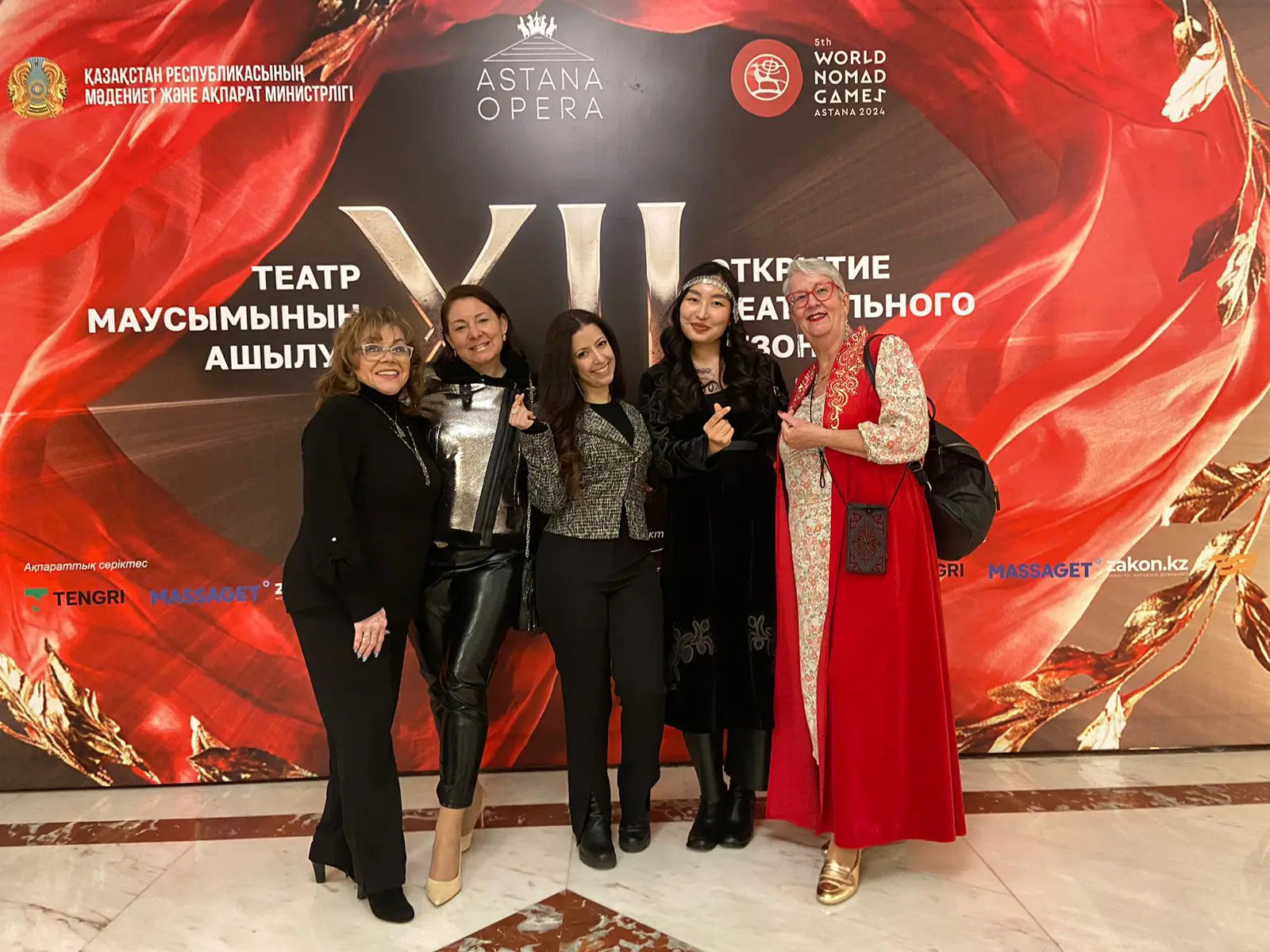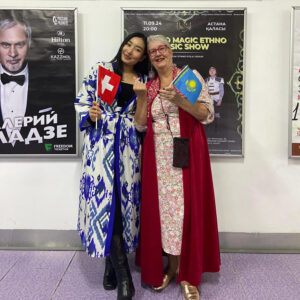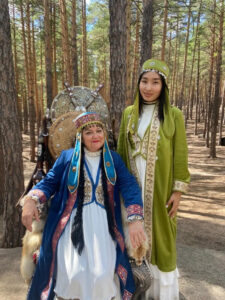ASTANA – Kazakh pop singer Dimash Qudaibergen captivates audiences worldwide with his remarkable talent, using his music to promote Kazakh culture and inspire fans to learn the Kazakh language. His fans, known as Dears, turn to Aidana Bekbolatova, a popular Kazakh language tutor, to understand the lyrics he sings.

Bekbolatova and her students during their visit Astana Opera. Photo credit: Bekbolatova’s personal archieve
“Teaching is my calling”
Bekbolatova attributes her love for teaching to her educator parents and her early experiences tutoring classmates.
“I started tutoring during my first year of university, helping upperclassmen with coursework and thesis papers,” Bekbolatova told The Astana Times. “Later, I taught the History of Kazakhstan and the Kazakh language to native students and realized teaching was my calling. Today, I teach students from diverse countries and backgrounds, covering subjects like Kazakh history, mathematics, English, and, of course, Kazakh.”
Bekbolatova’s international teaching career took off during a study grant semester in Germany, where she met Esther Ullman from Switzerland, a Qudaibergen fan who became her first international student.
“That was a turning point. I saw how important the Kazakh language is to people worldwide. Soon, I developed a methodology for teaching Kazakh to non-native speakers and received inquiries from Switzerland, Germany, the United States, and the Netherlands,” she said.
Many students find her through social media or by word-of-mouth, and Qudaibergen’s rising popularity has fueled interest in the language.
Music as a bridge to language
She is inspired by the chance to share Kazakh culture through language, noting, “It is incredible to see students, drawn by the language, gain a deeper understanding of Kazakhstan, its history, and traditions. And Qudaibergen’s fans see Kazakh as a way to connect more deeply with our culture.”

Aidana Bekbolatova and Esther Ullman from Switzerland. Photo credit: Bekbolatova’s personal archieve
Her approach is highly personalized, creating curricula based on each student’s level and goals.
“We start with basic phrases and grammar but always include elements of Kazakh culture to give students a feel for the language’s context,” she said.
She incorporates Qudaibergen’s song lyrics into lessons, helping students bond with his music on a deeper level.
“We analyze his lyrics, break down the phrases, and work on pronunciation and intonation. And students love it — through music, they feel the soul of the language,” she added.
Some of her students have visited Kazakhstan to experience its culture firsthand.
“One student, Angélique Effendy from Germany, was so inspired by learning Kazakh that she spent a week with my family and traveled with me around Kazakhstan and Uzbekistan,” said Bekbolatova.
She has also assisted foreign fans attending Qudaibergen concerts in Astana, helping them arrange accommodations and activities.
Language as a way of life
Bekbolatova said her students are always touched by Kazakh hospitality and describe the language as sounding like music.
Bekbolatova finds motivation in the love her students have for Kazakh culture.
“Many students, even without visiting Kazakhstan, discover its culture through Qudaibergen’s music. Some start singing in Kazakh, which makes me incredibly happy,” she said.

Angélique Effendy and Aidana Bekbolatova. Photo credit: Bekbolatova’s personal archieve
She recalled one U.S. student who said Kazakh was no longer a hobby but “a way of life,” a statement that inspired her to continue refining her teaching methods.
While many of Qudaibergen’s fans start with basic conversational Kazakh, many become interested in mastering grammar and phonetics.
“His fans aim to go beyond the basics, aspiring to understand his music deeply and even speak Kazakh fluently to grasp the full emotional range of his lyrics. It is remarkable—students often start with essentials but strive for true fluency,” she said.
Bekbolatova highlighted the challenges foreign students face with Kazakh, particularly the Cyrillic alphabet, which is unfamiliar to many. The language’s structure and grammar also differ significantly from European languages, adding complexity.
“But my students are patient and work hard to overcome these obstacles. I support them with practice, explanations, and various exercises. I include cultural elements in each lesson, helping them not just learn Kazakh but appreciate its context,” she said.
Qudaibergen is a distinctive artist with an extraordinary vocal range, reaching both soaring highs and resonant lows. Yet, it is not just his technical skill that captivates audiences—it is the depth of emotion he brings to each performance, touching listeners on a profound level.
“I admire Qudaibergen’s work and am very familiar with his music. I attended one of his concerts, and he truly is a remarkable artist with a powerful voice and outstanding technique. I appreciate his contribution to music, and it is clear why he has such a devoted following,” said Bekbolatova.
